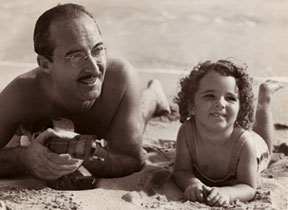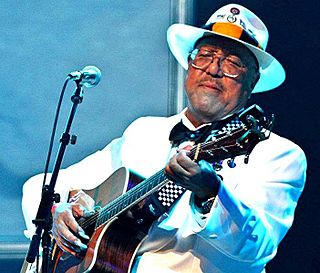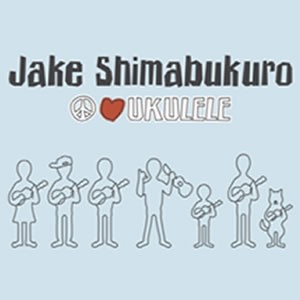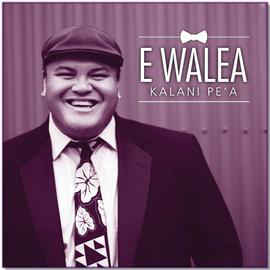
Carleton Lewis Kealiʻinaniaimokuokalani Reichel popularly known as Kealiʻi Reichel, is a popular and bestselling singer, songwriter, choreographer, dancer, chanter, scholar, teacher, and personality from Hawaiʻi. He has spent his life educating the world about Hawaiian culture through music and dance.

Jake Shimabukuro is an American ukulele virtuoso and composer known for his fast and complex finger work. His music combines elements of jazz, blues, funk, rock, bluegrass, classical, folk, and flamenco. Shimabukuro has written numerous original compositions, including the entire soundtracks to two Japanese films, Hula Girls (2007) and the Japanese remake of Sideways (2009).
Hoku Ho Clements is an American singer. She is best known for her 2000 hit single "Another Dumb Blonde" from the soundtrack and film Snow Day and the song "Perfect Day" from the soundtrack and film Legally Blonde.
Hocus Pocus or Hokus Pokus or variant, may refer to:

Harry Owens was an American composer, bandleader and songwriter best known for his song "Sweet Leilani."

Dennis David Kahekilimamaoikalanikeha Kamakahi was a Hawaiian slack key guitarist, recording artist, music composer, and Christian minister. He was a three-time Grammy Award winner, and in 2009 he was inducted into the Hawaiian Music Hall of Fame.
Andy Bumatai is an American comedian and actor.

Dennis Pavao, was one of several Hawaiian musicians who, during the 1970s, led a Hawaiian music renaissance, reviving Hawaiian music, especially "ka leo ki'eki'e," or Hawaiian falsetto singing. Along with his cousins, Ledward and Nedward Kaʻapana, Pavao started the group Hui ʻOhana. Hui ʻOhana became the premier falsetto group in Hawaiʻi. After the breakup of Hui ʻOhana, Dennis Pavao moved on to pursue a solo career.
Teresa Bright is a native-Hawaiian entertainer who plays 'ukulele and guitar. Her music is popular in Japan as well as in Hawaii and the United States mainland. Much of her repertoire features lyrics in the Hawaiian Language, but she has an extensive jazz and hapa-haole repertoire as well.
The Brothers Cazimero was a Hawaiian musical duo made up of Robert Cazimero on bass and Roland Cazimero on twelve string guitar. Robert also played piano as a solo musician. The Cazimeros got their start during the Hawaiian Renaissance with ukulele and slack-key guitarist Peter Moon's band, The Sunday Manoa, on their first recording, Guava Jam. Since that time, The Brothers Cazimero have released at least 36 recordings and three DVDs. For three decades, the group performed at the annual Lei Day Concert. They made their Carnegie Hall debut in 1989.
Keahiwai was a Hawaiian music duo composed of musicians Mailani Makainai and Lei Melket from Mililani, Hawaii.
Melveen Leed is an American singer. She graduated from Radford High School in Honolulu. After winning the title of "Miss Molokai" she begin singing in the mid-1960s and has released a number of records in the genres of Hawaiian, Country, and Jazz music.
The Throwdowns is an American pop-island-reggae-dance band from Maui, Hawaii, formed in 2009.
The Nā Hōkū Hanohano Awards, occasionally called the Nā Hōkū Awards or Hoku Awards, are the premier music awards in Hawaii. They are considered to be Hawaii's equivalent of the Grammy Awards. "Nā Hōkū Hanohano" means "Stars of Distinction" in Hawaiian – "hōkū" means "star", "nā" makes it plural, and "hanohano" means "glorious, worthy of praises". The awards were founded in 1978 by radio personality Krash Kealoha of KCCN-AM, a radio station which focused on traditional Hawaiian music. He launched the first awards with the support of the owner of the radio station Sydney Grayson, and his fellow DJs Kimo Kaho‘āno and Jacqueline “Skylark” Rossetti.

Peace Love Ukulele is Jake Shimabukuro's 2011 solo album. It was released in January 2011, and reached #1 in Billboard's Top World Music Albums in 2011 and 2012.

William Awihilima Kahaiali'i, known as Willie K, is a Hawaiian musician. He performs in a variety of musical styles, including blues, rock, Hawaiian, and opera. Born and raised in a family of musicians in Lahaina, Maui, Willie began performing at the age of 8 alongside his father, Hawaiian jazz guitarist Manu Kahaiali’i.
Kuana Torres Kahele is a Hawaiian musician, vocalist, songwriter, record producer, dancer, and educator from Hilo, Hawaii. Known primarily for his original acoustic compositions, Kahele arranges traditional Hawaiian music as well, performing and recording with instruments such as ukulele, guitar, ipu, and bass. The majority of his lyrics are written and performed in the Hawaiian language. After learning kane dancing and mele writing in his teens, in 1995 Kahele co-founded Nā Palapalai, a Hawaiian music group that has released seven albums. Several have charted in the top five on the Billboard Top World Albums chart, and the group has won a large number of Nā Hōkū Hanohano Awards, including Group of the Year.

Jaye Nāpua Greig-Nakasone, known professionally as Nāpua Greig, is a Hawaiian musician, vocalist, songwriter, record producer, kumu hula, and educator from Maui, Hawaii. Known primarily for her contributions as kumu hula of Hālau Nā Lei Kaumaka O Uka, she arranges traditional Hawaiian music as well, performing and recording with instruments such as ukulele, ipu, and other traditional Hawaiian hula implements. She has released four solo albums, each earning a Nā Hōkū Hanohano Award.
Raiatea Mokihana Maile Helm is a Hawaiian music vocalist from Molokaʻi, Hawaiʻi. She has earned four Na Hoku Hanohano awards, as well as two Grammy nominations for Best Hawaiian Music Album.

E Walea is the debut album by Hawaiian singer Kalani Pe'a. It was released on August 5, 2016.








